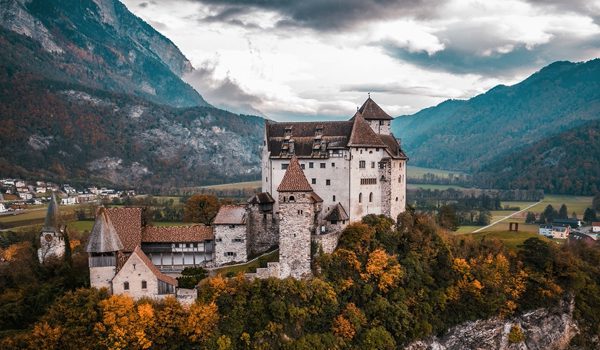Is Europe’s Latest Answer to Vegas About to Close Its Doors?
The sixth-smallest nation on Earth, and one of Europe’s trendiest microstates, Liechtenstein has much to boast. From its stunning scenery stemming from its situation within the alps between Austria and Switzerland to its impressive array of museums and cultural institutions, no one can accuse the nation of lacking. However, if a referendum due to be decided on January 29 deems to restrict the only-recently-liberalized gambling laws in the country, it may very well be lacking in what has seen it dubbed the Las Vegas of the Alps; casinos.

You could be excused for knowing little about one of Europe’s smallest nations at all, let alone knowing little about its burgeoning casino industry. And yet since 2017, the casino scene in Liechtenstein has truly flourished. The between 30,000 and 40,000 inhabitants of this tiny country have the run of six casinos – to put that into perspective, everyone’s favourite small European island nation, Ireland, is towards the top of the list of casinos per capita at one for every 300,000 residents. Should this January referendum prove to be the death knell for Liechtenstein’s casinos, it’s sure to be a major blow to its citizens and leave a gap in its entertainment economy.
Last In, First Out for Liechtenstein?
Europe has a rich history when it comes to casinos. Monte Carlo and London spring to mind when discussing the gaming palaces of the continent; with prestigious venues dotted around the cities, especially throughout history. However, Europe is a place that laughs in the face of hegemony and not every country was prepared to legalize gambling, even in state-overseen entertainment establishments. Liechtenstein was one such nation – it’s barely over half a decade since a change in the state’s laws allowed for casinos to open their doors, which made it a popular destination for gamblers from some of the more restrictive areas of Austria and Germany.
Now, however, there has been a real push by many who oppose the gambling industry in the country for the government to perform an about-face and reintroduce strict legislation which would effectively dismantle this new industry. The entity acting as the driving force behind this is known as IG VolksMeinung and it has explained that it doesn’t want Liechtenstein to establish itself as “a casino and poker hotspot in the middle of Europe”. If the group gets its way, all casinos currently open will have five years within which to cease operations, meaning that some will struggle to reach the decade mark. So what has spurred on such a movement in the country?
Historic Reputation Dictating Country’s Casino Future
For many within the pressure group attempting to force the government’s arm, the issue with casinos in the micronation stems from its historical reputation within Central Europe. Specifically, how it has dealt with finances and, more importantly, financial crime. As with many of the smaller states on the continent, Liechtenstein’s history has been littered with accusations of being used to disguise white-collar crime involving taxes and financial mismanagement from the authorities, especially in German-speaking countries like the aforementioned Germany and Austria. As such, IG VolksMeinung believes in order to flourish in the international spotlight, it would be better to move away from industries like banking and online casino.
However, the nation has taken steps to improve its reputation, including aligning itself with its fellow EU members by repealing its banking secrecy, meaning that its banks can no longer be used by citizens of the economic bloc as a way around legislation in their own countries. Because of this, it’s the view of those on the side of the gambling industry – including the government, which has spoken out and asked for citizens to vote against restrictions – that legislation is the answer, not abolition. For example, a prominent operator of casinos in the nation is reported as stating, “a well-regulated market is better than an outright ban”.
Casino Gaming an Economic Boon for Liechtenstein
Ultimately, behind the government and casino operators’ desire for evolution over revolution in gambling legislation is likely the realization of what the industry represents in terms of money in the coffers. According to government sources, casino tourism saw the country bring in around $55 million in taxes. While this won’t be what makes or breaks Liechtenstein’s post-bank-transparency prosperity, it’s no small bit of change to a country this size. It has a population less than 10% of Wyoming’s. No government would want to lose that income, especially at a time of worldwide economic uncertainty and instability.
It’s hard to be certain which way the referendum will go. However it’s clear to see that those in charge don’t want wholesale change in the fundamentals of the industry. Due to that, it seems unlikely that the citizens will be looking to upset the balance. With all that said, as European referenda have shown us in recent years, it’s unwise to count your chickens before they’ve hatched.
